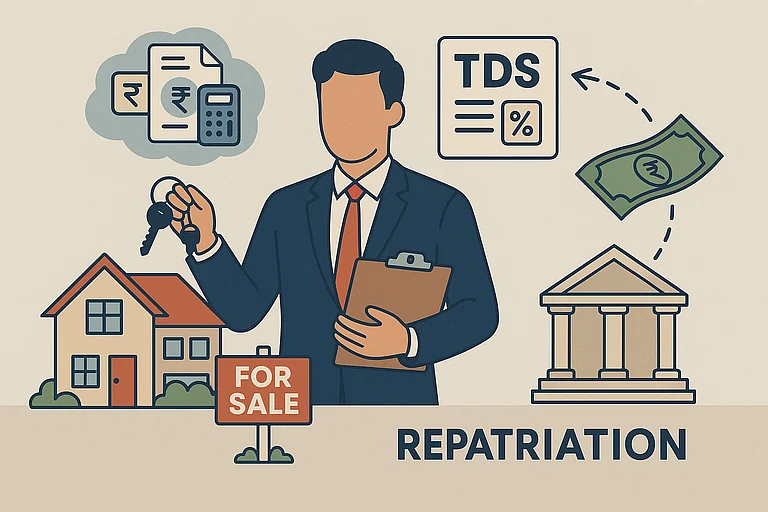LTCG exemption applies if property held over two years.
Pension maturity amounts are taxable in the year received.
NRI rental income below limit may not require ITR filing.
Sale Of House Held For More Than Two Years Qualifies For LTCG Under Income Tax Laws
Any residential house purchased for claiming exemption needs to be held for three years, else the exemption claimed will get reversed. Any amount received either as pension or maturity amount of a pension plan becomes taxable in the year in which the amount is received. If taxable income from house property is less than the exemption limit, an NRI will not pay to file ITR
My mother sold a residential plot in September 2025, which was bought in FY 2017-18. She plans to sell a semi-finished (not finished after years of due date by builder's fault) duplex which was booked in December 2019. If she invests receipt of these two transactions in another residential property, would she be able to save capital gain tax? She has one residential flat in her possession.
Yes, your mother can claim exemption against the capital gains arising on sale of residential plot as well as an incomplete house property under Section 54F of the Income-tax Act, 1961, as both the assets have completed two years and have become long-term capital asset resulting into long-term capital gains (LTCG) on sale.
For claiming exemption under Section 54F, your mother has to invest the net amount received on sale of both these assets within two years for purchase of a new residential house or get a new residential house constructed within three years. Since your mother has only one house on the date of sale of these assets, she is eligible to claim the tax exemption under Section 54F.
In case the amount is not fully utilised for these purposes by the due date for filing of the income tax return (ITR), she has to deposit the unutilised amount in an account under the Capital Gains Account Scheme, which has to be used within the time specified. The residential house so purchased for claiming exemption needs to be held for three years; else the exemption claimed earlier will get reversed.
I bought a pension plan for which I had an annual premium of Rs 10,000 for the full term. The policy matured during the current year. Instead of buying an annuity, I encashed the full amount of Rs 3 lakh. I want to know the income tax implications of this.
I presume you had claimed deduction under Section 80 CCC of the Income-tax Act, 1961 for the premiums paid for this pension plan. Any amount received either as pension or maturity amount of a pension plan becomes taxable in the year in which the amounts are received. So, the amount of Rs. 3 lakh received by you will become taxable in the year in which the amount has been received, and it will be included in your other income.
I am a non-resident Indian (NRI) residing abroad for the past 20 years with my family. I have two flats at different locations in India. One flat is in my name and another one is in my wife’s name. Both the flats are let out and I receive rent of Rs. 25,000 per month for each flat. We both have Permanent Account Number (PAN). Is it necessary to file ITR every year? Is this rental income taxable?
I presume that both the flats are owned by you and your wife respectively and, therefore, the rental income in respect of these flats is taxable in respective hands. I also presume that you do not have any other income. So, the taxable income under the head income from house property comes to Rs. 2.10 lakh after deducting 30 per cent as standard deduction under Section 24 of the Income-tax Act, 1961, from the annual rental of Rs. 3 lakh. Since this is below the exemption limit of Rs. 2.50 lakh you are not required to file your ITR.
However, in case both the flats are purchased by you from your fund and just for the name sake one is held in your wife’s name, income in respect of both the flats shall become taxable in your hand and you will have to pay tax and file your ITR.
The author is a tax and investment expert and can be reached on jainbalwant@gmail.com
(Disclaimer: Views expressed are the author’s own, and Outlook Money does not necessarily subscribe to them. Outlook Money shall not be responsible for any damage caused to any person/organisation directly or indirectly.)
